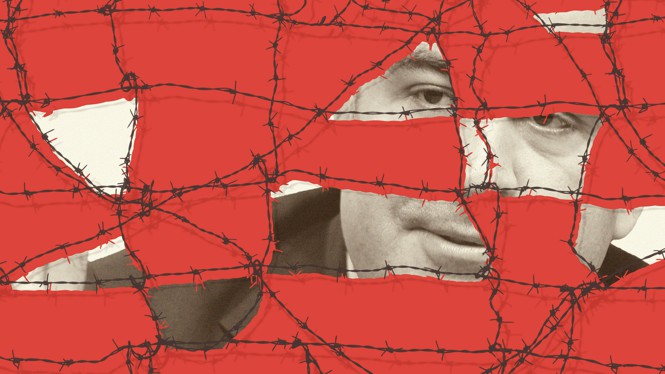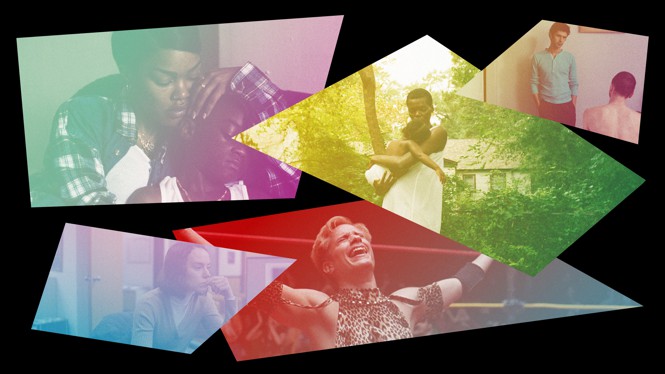
Computer games, like movies, music, and television, are part of our culture and often reflect our fears and worries—especially about the end of the world. And I’ve been playing them for years.
But first, here are three new stories from The Atlantic.
- This is not 1943.
- The stubborn pathology of police culture
- Why the U.S. isn’t shooting down the Chinese spy balloon
Nuclear War and Zombies
Computer games get a bad rap among those who do not play them. People associate them, at worst, with adolescent violence (despite lack of conclusive evidence for that theory) or, more benignly, with creepy nerds in Mom’s basement, yelling into their headsets and jabbing at keyboards while wiping Cheetos dust off their glasses.
Well, I am a happily married 62-year-old professional, and I play computer games. In fact, I have been playing them since the dawn of the personal-computing age. Yes, games are part of the escape from reality that my colleague Megan Garber wrote about in her cover story for the March issue of the magazine, but they’re also a perfectly reasonable hobby.
Still, you might ask why a grown man with a busy life—or, you know, any life—would waste precious hours in front of a screen. At the risk of handing a rationalization to students who have not finished their homework, I will say that I not only enjoy the process of playing but also find that games enhance my productivity rather than destroy it. I play computer games for the same reason I play golf: The engrossing requirement to complete a set of objectives clears my mind. When I return from the golf course or close the game program, my brain has been shaken and cleared like an old Etch A Sketch, and I’m ready to work again.
Even pointless games can be relaxing (especially if they’re visually pretty), such as the “loot and shoot” adventures in which you kill something and take its money or possessions, over and over again. And sometimes, you just want to roll your army over some hapless Roman commander or drag space bandits through an asteroid field. But my favorites are the games that have intricate plots, because many of them are cultural markers that reveal what fascinates us—and more important, what scares us.
Back in the 1980s, for example, Americans wrestled with fears about World War III. So did games. I have spent my entire career studying war and nuclear weapons, and for me, roaming around in a destroyed world is much like going to horror or disaster movies, or reading fairy tales (which are really scary if you think about most of them): It’s a way of processing fear.
Consider Trinity, a 1986 text-based game. (Early computers had no serious graphics capability, so these games instead required you to read quite a bit and then issue commands and solve puzzles.) In Trinity, nuclear war breaks out at the beginning of the game; the player escapes through a portal and must tumble backwards through time all the way to the Trinity nuclear test site in 1945 in order to sabotage the first atomic bomb, thus preventing the nuclear-arms race and the eventual war.
Thematically, this was not exactly a game for children. Nor were the many games that followed it, including the 1988 classic Wasteland, in which the player must lead a team of Desert Rangers through the ruins of the Southwest to discover the source of a new threat that could finish the job of annihilating humanity. These games followed a spate of Cold War movies and music shot through with nuclear anxieties, such as WarGames, Red Dawn, The Day After, and Testament; you could play Trinity or Wasteland while listening to “99 Luftballons,” by Nena, or “It’s a Mistake,” by Men at Work, and spend a cozy afternoon traipsing through Armageddon. (Nuclear war is back: One game studio just released a highly detailed nuclear-conflict simulator, but I haven’t played it. Yet.)
As the nuclear threat receded and threats to our health, such as AIDS, began to dominate our fears, pop culture—including games—spoke to those fears. Biohazards became a dominant theme in gaming, with mad scientists and big corporations mucking about with our DNA, weird pathogens, doors to alternate dimensions, or even the gates to hell itself, all in the name of profit, while unleashing freaks and mutants on the rest of us.
The granddaddy of the biohazard-genre games, Resident Evil, was released in 1996 and led to several more games and movies; the first motion picture in the franchise debuted in 2002 and was followed by five more sequels and then a 2021 reboot. Last month, HBO premiered a new series, The Last of Us, based on a highly regarded game of the same name. It is set in a world where a fungus has turned most people into crazed zombies, and so far, like the game, it’s a hit.
Amazon is working on a series based on an even bigger end-of-the-world franchise: Fallout, a game that hit the shelves in 1997 and takes place about 100 years after a war with China. (The war was set off by an imperialistic global free-for-all over power and resources; the Americans, in keeping with the game’s retro-futuristic, back-to-the-1950s ethos, are super-patriotic McCarthyites who even annexed Canada just to be on the safe side.) Fallout was a kind of successor and homage to Wasteland, with a dark but often laugh-out-loud sense of humor, a fully realized postnuclear Los Angeles populated with fascinating characters, and a story line that, again, was not exactly for children. Fallout became a huge success, spawning multiple game sequels over the next two decades.
I am praying that Amazon doesn’t screw this up, because Fallout is my personal gaming obsession. I have played all of the original games multiple times, and as someone who’s had to live with the subject of nuclear war as part of my career, I appreciate the underlying melancholy in the Fallout world. Even my wife (who does not play computer games) found herself moved one evening as she peeked in to watch me walk through the ruins of our beloved Boston, where I found skeletons, sometimes side by side and holding hands, in destroyed homes. It’s a fun, often hilarious game, but underneath it all is a sadness that should be there if you’re thinking about the end of humanity.
It is natural to be fascinated by the ramifications of global catastrophe, but the best games present the player with difficult moral choices and awful, sometimes unavoidable dilemmas. There are many in Fallout and (a big one at the end of The Last of Us). Regardless of our choices, it can be healthy and cathartic to experience the terror and then revel in feeling safe, just like at the end of a slasher movie, when the lights come on and you look around. I’m still here. Everything is still here. It’s just a movie. It’s just a game.
Let’s hope it stays that way.
Related:
Today’s News
- Secretary of State Antony Blinken postponed his trip to Beijing after a Chinese “intelligence-gathering” balloon was detected floating over the United States.
- The U.S. economy added 517,000 jobs in January, and the unemployment rate dropped to 3.4 percent—a low the country hasn’t seen since 1969.
- President Volodymyr Zelensky said that Ukraine aims to hold on to the eastern city of Bakhmut for as long as it can.
Dispatches
- Work in Progress: The economy is still very, very weird, Derek Thompson writes.
- Books Briefing: Sports offer more than winning, Elise Hannum writes.
Explore all of our newsletters here.
Evening Read

The Slow-Motion Murder of Mikheil Saakashvili
By Anne Applebaum
Sixteen months after his arrest, Mikheil Saakashvili has lost more than 90 pounds and needs a walker to move around his prison hospital. The former Georgian president was for a time, on a hunger strike, which helps explain his weight loss and his exhaustion. But it does not explain the traces of arsenic, mercury, and other toxins that a doctor found in his hair and nail clippings. It does not explain the beatings he has described to his lawyer. It does not explain the constant pain in his left shoulder, neck, and spine.
Nor can anything other than malice—organized, official, state-sponsored malice—explain why Saakashvili is on a strange medical regimen that includes 14 different drugs, some addictive, some not approved for sale in the United States. Or why he has mild brain damage. Or why he has seizures. Giorgi Badridze, a former Georgian ambassador who keeps in constant touch with Saakashvili’s family, told me that “nothing has been exaggerated. He is doing really badly.” At age 55, Saakashvili is declining rapidly. And as he declines, so do the prospects of a sovereign, democratic Georgia.
More From The Atlantic
- What is it about Pamela Anderson?
- The good news about vaccine hesitancy
- Photos of the week: masquerade games, figure skating, and more
Culture Break

Read. Victory City, Salman Rushdie’s new novel, is a triumph.
Or try “Background,” a new short story by Elaine Hsieh Chou.
Watch. In theaters, M. Night Shyamalan’s Knock at the Cabin pairs a ludicrous horror concept with a healthy dose of tenderness.
On TV, Poker Face with Natasha Lyonne (streaming on Peacock) has a sting in its tail, our critic writes.
And keep your eye out for these 15 great indie films this year.
P.S.
I’ll skip a longer sign-off today and instead suggest that you get your hands on some of the games I mentioned. Fallout aficionados argue over the best game in the series, but I rather love Fallout: New Vegas, and I recommend you start there. (I would avoid the multiplayer Fallout 76, which I think was poorly conceived and violates the spirit of the original games.) New Vegas has a cast that includes Matthew Perry, Kris Kristofferson, Felicia Day, William Sadler, Alex Rocco, Dave Foley, René Auberjonois, and—I am not kidding—Wayne Newton. It’s a hell of a story, and you get to hang around in postnuclear casinos and gamble, which is where I’d want to be if someone drops the Big One someday.
— Tom
Isabel Fattal contributed to this newsletter.







